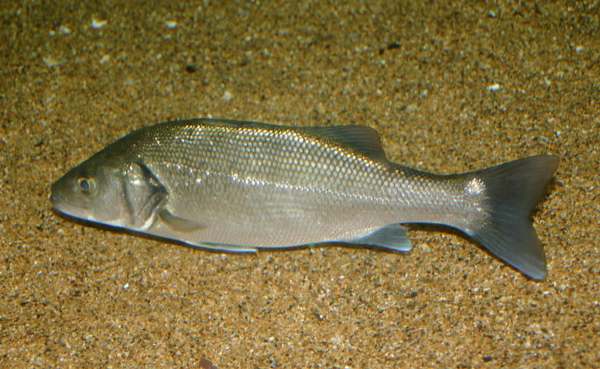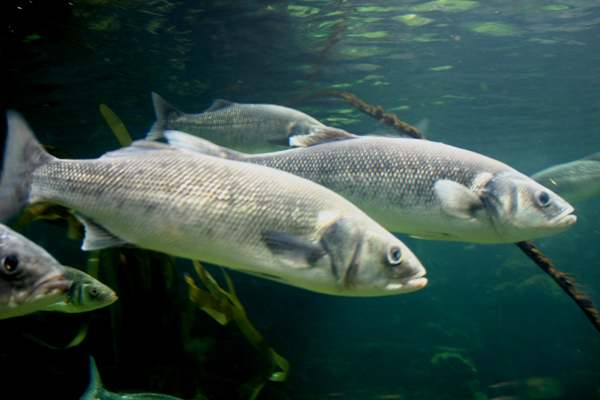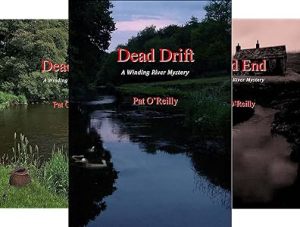Dicentrarchus labrax - Bass
Phylum: Chordata - Class: Actinopterygii - Order: Perciformes - Family: Moronidae

One of the most exciting of all sport fish that can be caught from the shore, bass can grow to 15 lb (7 kg) or more in Welsh coastal waters, and a record specimen of almost 17 lb was caught from the shore at Aberthaw in 1980.
The West Wales storm beaches provide particularly good fishing, while some of the rocky coves on the Gower are also well worth a visit.
Bass are slow-growing fish and take between 10 and 20 years to reach full maturity. It is therefore very important not to kill undersized bass (the legal size limit is 41 cm or 16 inches) or to take more than a modest catch when the fishing is easy; the future of bass fishing depends upon fishermen acting responsibly towards stock conservation.

Wales is at the northern limit of the bass's geographical range, and in autumn they migrate to warmer waters where they spend the winter months. Bass fishing is therefore very much a fair-weather sport. Spinning and fly fishing for bass on storm beaches or from rock perches are becoming increasingly popular methods of seeking this fine sporting fish.
Excited at the prospect of flyfishing? So are we, and we're pretty sure you would find the Winding River Mystery trilogy of action-packed thrillers gripping reading too. Dead Drift, Dead Cert, and Dead End are Pat O'Reilly's latest river-and-flyfishing based novels, and now they are available in ebook format. Full details on our website here...
Buy each book for just £4.96 on Amazon...
Please Help Us: If you have found this information interesting and useful, please consider helping to keep First Nature online by making a small donation towards the web hosting and internet costs.
Any donations over and above the essential running costs will help support the conservation work of Plantlife, the Rivers Trust and charitable botanic gardens - as do author royalties and publisher proceeds from books by Pat and Sue.
